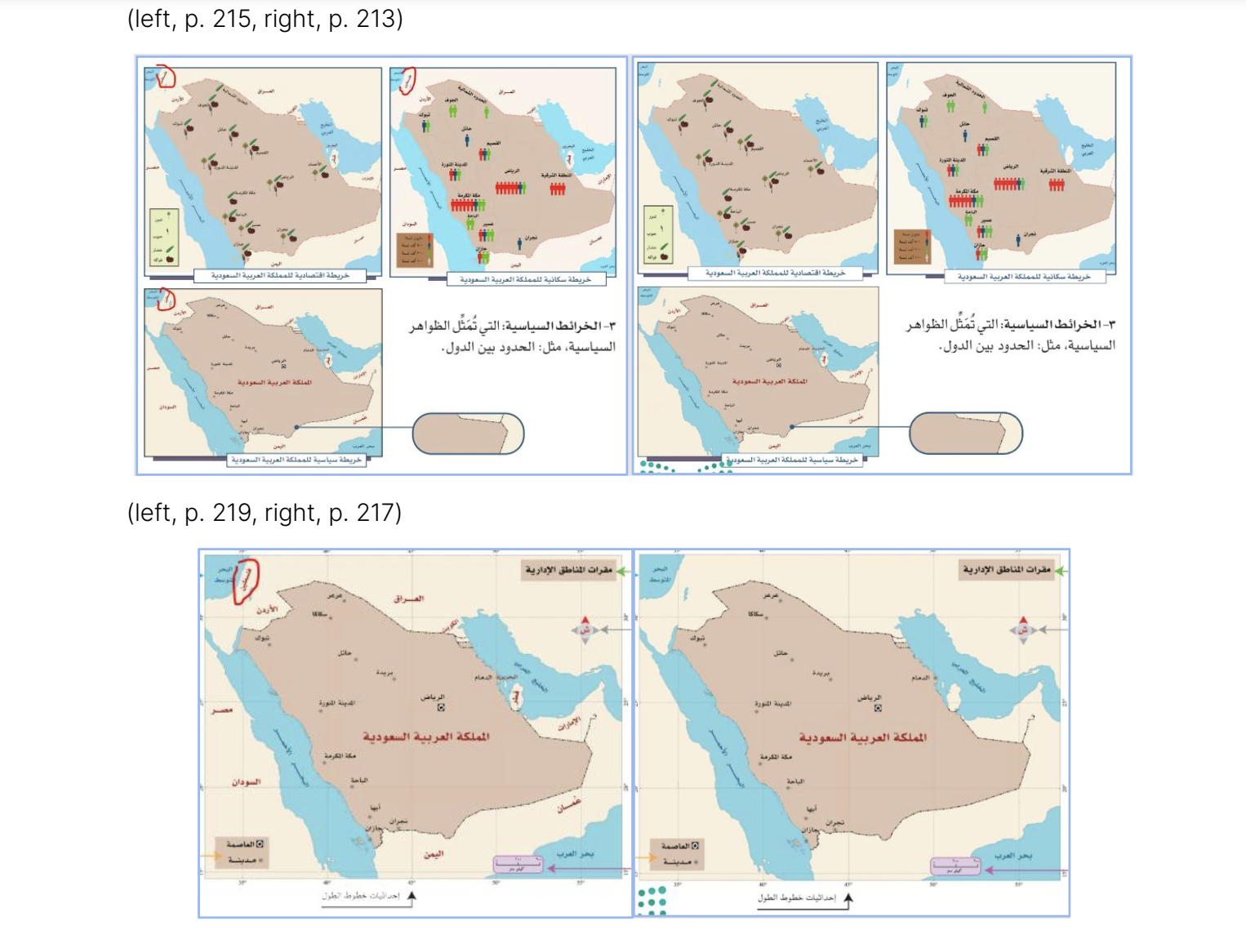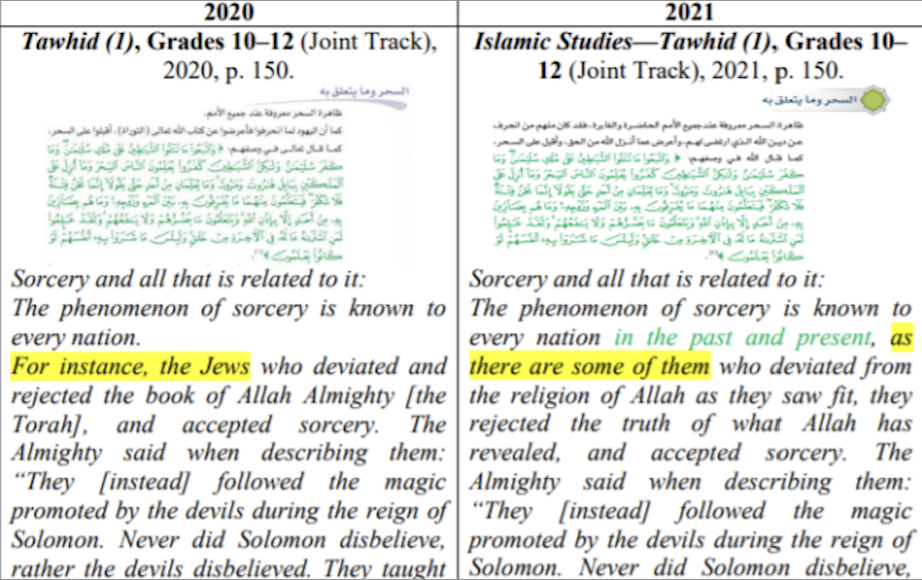Saudi Arabia reduces anti-Israel and antisemitic content in school textbooks

The Saudi Education Ministry continues to gradually remove offensive anti-Israel and antisemitic content from its school textbooks, according to a new study conducted by the London-based Institute for Monitoring Peace and Cultural Tolerance in School Education (IMPACT-SE).
The institute encourages the moderation of textbook content to align with UNESCO standards of peace and tolerance. The gradual changes are part of the Saudi Kingdom’s broader efforts to rebrand itself as a modern and forward-looking society.
The report noted a gradual content improvement in Saudi textbooks when referring to Israel, Zionism and Jews.
"Portrayals of Israel and Zionism have progressed further. Students no longer learn content which defined Zionism as a “racist” European movement that aims to expel Palestinians, or that Zionism’s “fundamental goal” is to expand its borders and take over Arab lands, oil wells and Islamic and Christian holy sites in Jerusalem," according to the IMPACT-SE assessment.
In 2023, a Saudi Social Studies Grade 9 textbook depicted the entire territory of Israel, including Judea, Samaria, and Gaza, as “Palestine.” In the revised 2024 edition, the Saudi ministry removed the “Palestine” reference, but Israel was still not identified on the map within any boundaries. Additionally, Saudi textbooks continue to omit teaching about the Holocaust, and the Jewish state is still referred to as “the Israeli occupation” or “Israeli occupiers.”

While problematic content remains present in Saudi textbooks, IMPACT-SE CEO Marcus Sheff welcomed the positive improvements in the Saudi attitude towards Israel and Jewish people.
"Saudi textbooks published for the 2023/24 school year represent another step toward turning the curriculum into an educational framework that encourages tolerance, peace, and greater equality. After antisemitism has already been removed from textbooks, it is particularly encouraging that Saudi curriculum designers have made additional changes that present Israel in a more positive light. These changes are good news for the future of the entire region," Sheff stated.
Saudi Arabia and Israel currently do not have official diplomatic ties; however, covert connections have reportedly expanded in recent years. The perception of shared regional interests and the Iranian regime as a common threat has further facilitated informal ties between Riyadh and Jerusalem that have not yet been formalized.
While Saudi Arabia did not officially join the historic Arab-Israeli Abraham Accords in 2020, it reportedly played a central role behind the scenes in fostering the growing regional ties between Israel and much of the Sunni Arab world.
In early 2022, just months after the signing of the Abraham Accords, IMPACT-se noted an improvement in Saudi textbook references to the State of Israel and Jews.
“Following the groundbreaking normalization and thawing of relations between Israel and several of the Gulf states as well as with other Muslim countries such as Sudan, we are more confident in our evaluation that real change is occurring. We have found that many problematic examples had been removed from the curriculum. The removal of these examples should certainly be seen as a significant improvement and an encouraging development, understood as representing a step toward moderation,” IMPACT-SE stated.
In 2023, IMPACT-SE noted further moderation in Saudi textbook language when referring to Israel, Jews and non-Muslims in general.

The United States has invested considerable diplomatic resources in facilitating a normalization agreement between Saudi Arabia and Israel.
In an exclusive FOX News interview in September 2023, Saudi Crown Prince Mohammed bin Salman (MBS) publicly stated that the Saudi Kingdom and Israel were getting closer to a normalization agreement.
However, after the Hamas attack on Israel on Oct. 7, which resulted in the massacre of over 1,200 Israeli men, women, and children, and the taking of over 250 hostages into Gaza, the situation changed. Israel responded with military operations against Hamas in Gaza, which have been heavily criticized by the Saudis and other Arab states.
While the Saudis have stated that a potential normalization agreement is still on the table, Riyadh demands that Israel first publicly commit to implementing the two-state solution.
According to a new poll by the Jerusalem Center for Public Affairs (JCPA), 64% of Israelis currently oppose the creation of a "Palestinian state" as part of a normalization deal with the Saudi Kingdom. Many Israelis have expressed a loss of hope in the viability of a peaceful two-state solution.
We recommend to read:

The All Israel News Staff is a team of journalists in Israel.














